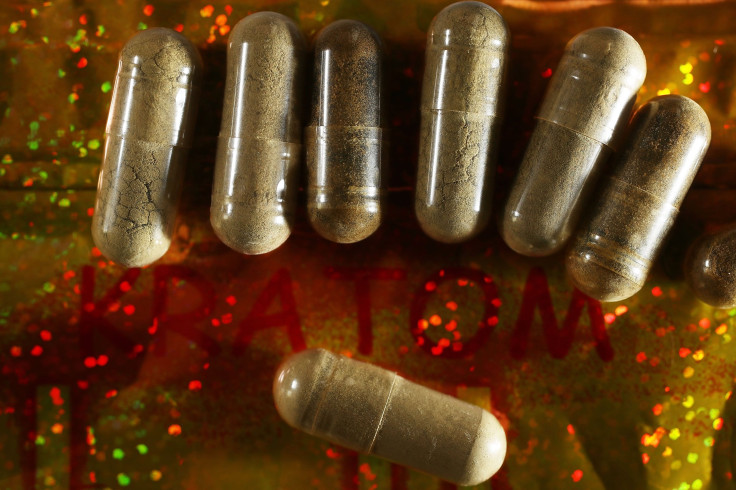What Is Kratom? Opioid Alternative Poses 'Deadly Risks,' FDA Warns

The Food and Drug Administration (FDA) issued a public advisory Tuesday about the herbal supplement kratom. The FDA said the supplement, marketed as an alternative to painkillers and an opioid withdrawal tool, comes with “deadly risks.”
“There’s clear data on the increasing harms associated with kratom. Calls to U.S. poison control centers regarding kratom have increased 10-fold from 2010 to 2015, with hundreds of calls made each year,” said FDA Commissioner Dr. Scott Gottlieb in a statement. “The FDA is aware of reports of 36 deaths associated with the use of kratom-containing products. There have been reports of kratom being laced with other opioids like hydrocodone. The use of kratom is also associated with serious side effects like seizures, liver damage and withdrawal symptoms.”
Kratom is a common name for a plant that grows in several countries in Southeast Asia including Thailand, Malaysia, Indonesia and Papua New Guinea. The plant is used in a supplement and is marketed for a variety of uses, including everything from treating pain and anxiety to helping people recover from opioid withdrawal.
Kratom in small doses can act as a stimulant, but at high doses can act like an opioid, which is a depressant. The FDA said that some of the adverse risks of opioids also appear with kratom use, including “abuse, addiction and in some cases, death.”
The federal government has not classified kratom as illegal, but some states, including Alabama, Arkansas, Indiana, Tennessee and Wisconsin, have banned it, according to the Associated Press.
Last year the Drug Enforcement Administration planned to make kratom a Schedule I drug, a category that includes marijuana and LSD, but decided against it after an outcry of opposition. Several lawmakers and the White House lobbied against it.
Gottlieb said that the drug should be studied before people take it for any reason. Currently, there appeared to be no companies reviewing kratom to be used for medicinal purposes.
“There are currently no FDA-approved therapeutic uses of kratom,” said Gottlieb. “Before it can be legally marketed for therapeutic uses in the U.S., kratom’s risks and benefits must be evaluated as part of the regulatory process for drugs that Congress has entrusted the FDA with.”
© Copyright IBTimes 2024. All rights reserved.











